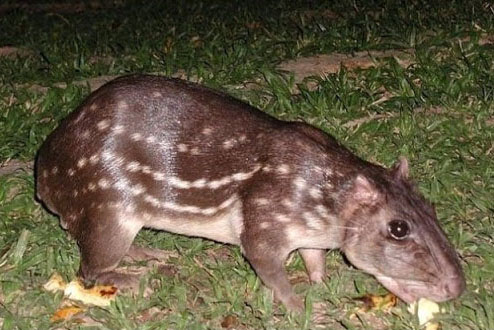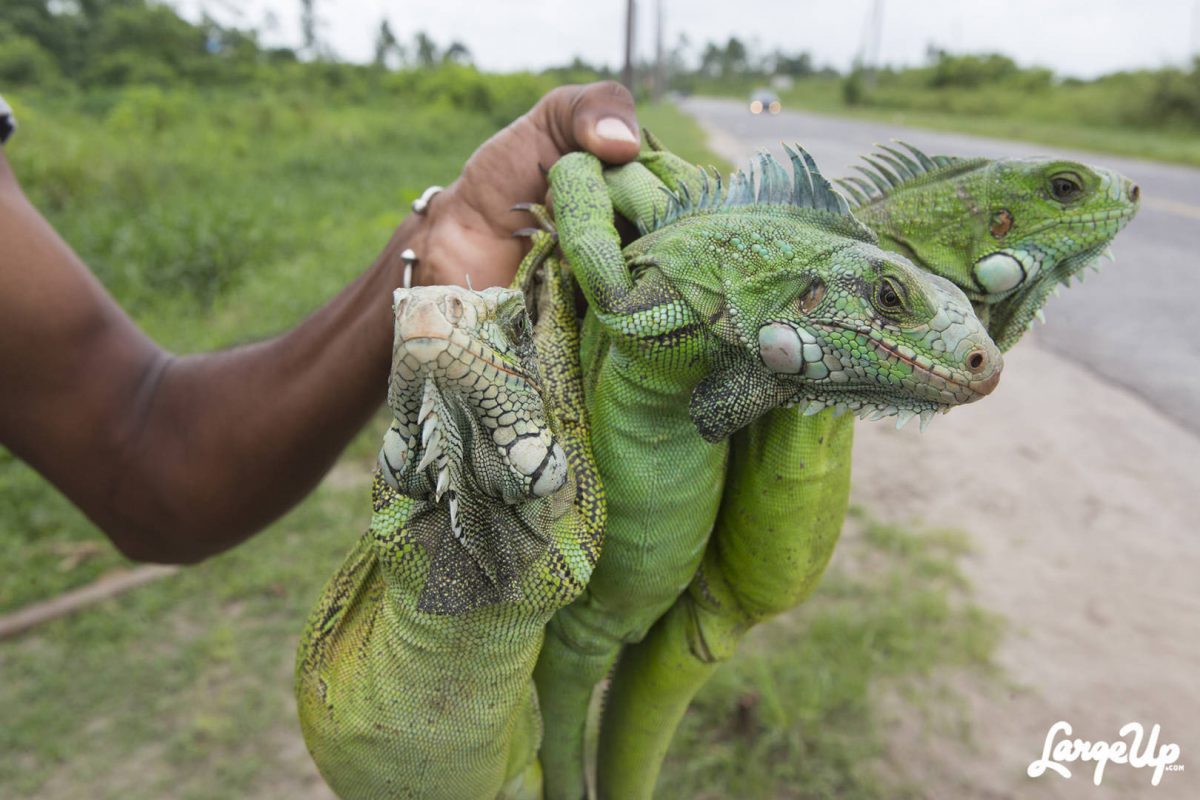A warning from the Food & Agriculture Organization (FAO) about the consumption of “wild meat” in the face of the global coronavirus pandemic outbreak could compel large numbers of Guyanese to set that particular preference aside at least for as long as the virus persists. Conceivably, the FAO’s refrain could even have a telling impact on what, the Stabroek Business understands, has become a growing local industry.
“People should not handle, slaughter, dress, sell, prepare or consume meat that originates from wild animals or livestock that are sick or that have died from unknown causes,” the FAO advisory declares, adding that “wild meat or uncooked dishes based on the blood of wild animals should not be consumed.” The warning, which appears in a recent FAO advisory titled “Q&A: COVID-19 Pandemic – Impact of Food and Agriculture” can “put some people out of a regular business,” opined a Georgetown restaurant owner who described the sale of cooked wild meat as “a side hustle” for some eating houses in the city. In another invited comment on the recent FAO advisory, an East Coast Demerara businessman, whose entrepreneurial pursuits include wild-meat ‘distribution’ told this newspaper on Monday that news of the FAO’s warning had come as a surprise to him. “I didn’t know that before now,” the businessman, who declined to be named in the story said. “It means that people in the wild meat business will definitely take a hit. It has been a good business for some people,” he added.

Another Guyanese food vendor who has established a reputation for preparing and offering ‘wild meat’ at barbecues and other popular entertainment events told the Stabroek Business that he too was unaware of the FAO advisory. “That is not good news,” he told this newspaper. “Wild meat is a living for quite a few people in this country.”
The continued global probe into the likely origins of the coronavirus and a search for treatment options is compelling medical researchers to paint with a broad brush and it would appear that a range of possibilities are being ruled in until they can be definitively ruled out.
The FAO says in its advisory that while “there is no evidence of any animal including pets playing a role in the spread of the virus,” persons should, “as a general practice, when caring for any kind of animals, always wash your hands before and after interacting with them.”
While wild-meat traders are likely to feel hard done by over the FAO’s warning against ‘wild meat’ consumption, the Tourism and Hospitality Association of Guyana (THAG) is likely to hold a different view as it is calling for the trade in and commercial use of wild animals to be banned. In November last year THAG president Mitra Ramkumar made what he described as a “re-appeal” for a “ban on the wildlife trade and the commercial use of wild meat.” Ramkumar had said at the time that Guyana should not be pursuing the wildlife trade if the country wanted to retain its high eco-tourism rating.
Animals like labba, deer and turtle are among those that have been categorized as ‘wild meat.’ These are usually caught in the wild, slaughtered and brought to the coast where the meat is sold by known ‘distributors’ at prices well above those of the meat of domestic animals. While many non-coastal and interior residents consume these meats as part of their regular diet, the urban culinary culture has embraced them as sought-after culinary delicacies.
The FAO says that as part of its response to COVID-19 it is seeking to “support developing countries to anticipate and mitigate the pandemic’s impacts on their populations’ food security and livelihoods and “contribute to discussions on mitigating COVID-19’s impacts on global food trade and markets.” At the same time the organization says that that it is also seeking to “support countries and research institutions in ongoing investigations to identify potential animal hosts of the virus and reduce spillover effects to humans.”
Meanwhile, the FAO also says that it “provides policy advice, and shares guidelines and best practices to countries on “ensuring food supply chains’ continuity and protection; protecting vulnerable populations’ food security and nutrition; food hygiene; and ensuring readiness to rapidly detect COVID-19 in animals and animal products, if need be.”
And while the FAO says that any unusual morbidity or mortality of animals should be reported to the local animal health authorities. It urges animal owners to treat their animals humanely, pointing out that misleading information exists on the possible risks posed by animals if the Coronavirus spreads further. “FAO urges animal owners to treat their animals humanely. Misleading information exists on the possible risks posed by animals in the virus’s spread. “There is no evidence of any animal including pets playing a role in the spread of the virus. As a general practice when caring for any kind of animals, always wash your hands before and after interacting with them,” the advisory says.






